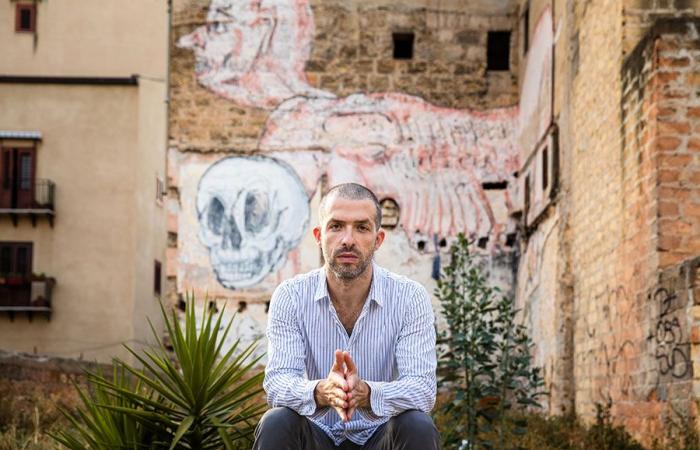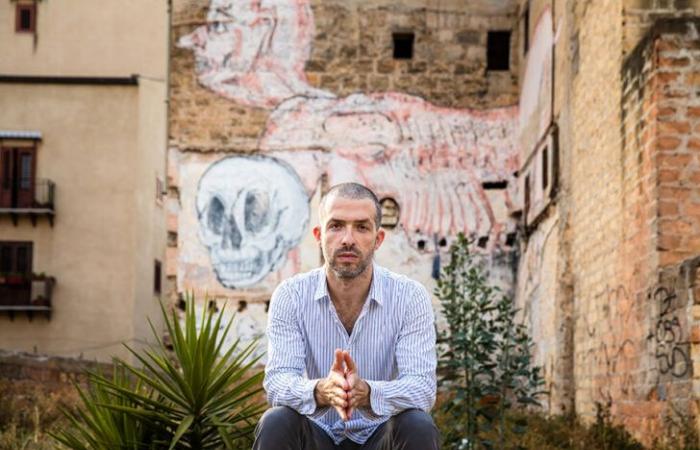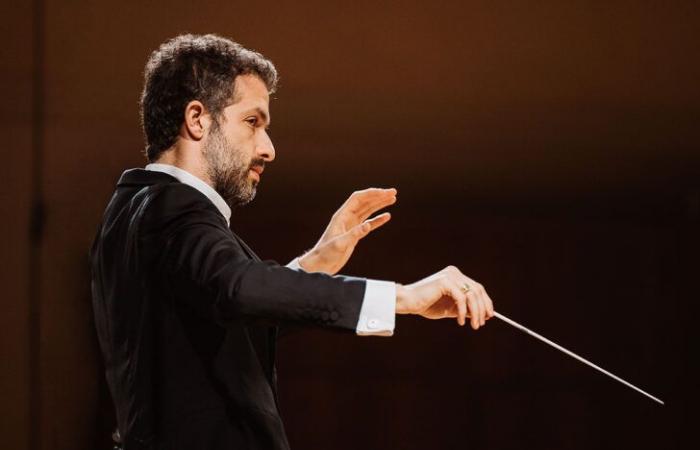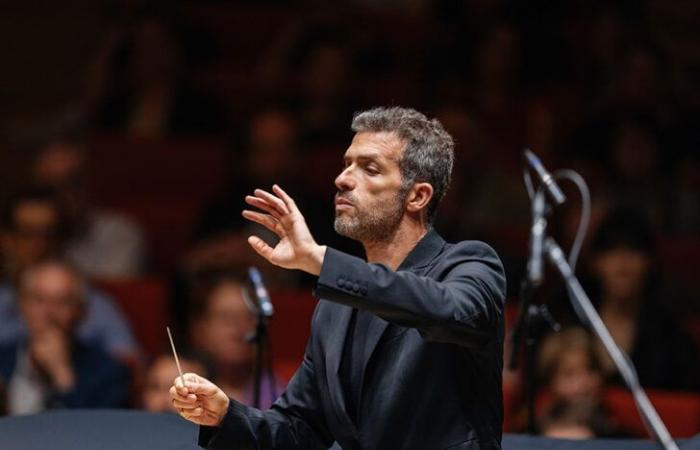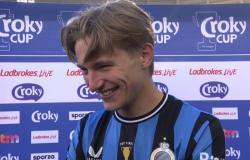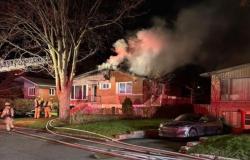At the Philharmonie de Paris Two evenings in early May for the “Kaiser Requiem” project, the current music director of the Teatro Massimo de Palermo and next director of the Hamburg Staatsoper, Omer Meirber Share with us his vision of the current musical world, with the issues that result from it.
 ResMusica : Omer Meir Wellber, you are directing this season for the first time the Paris Orchestra, with a project that you have already worn several times, notably in Vienna and Palermo. Can you tell us a little more?
ResMusica : Omer Meir Wellber, you are directing this season for the first time the Paris Orchestra, with a project that you have already worn several times, notably in Vienna and Palermo. Can you tell us a little more?
Omer Meir Wellber : The “Kaiser Requiem” project appeared about four years ago. When I was in Dresden in 2017, I heard Der Kaiser von Atlantis (Editor’s note: the Emperor of Atlantis) by Viktor Ullmann by the young whole of semperoper and remained very impressed. Several weeks later, I realized that I was always haunted by the work, on which I started to find out in more detail. So, I looked for how the opera had been created, in the very difficult conditions that we know at the Theresienstadt camp.
At the time, this camp was a false showcase for the Nazis, which consisted in making believe that the artists present were in good conditions to continue to defend their art. When a camp had to be visited, until very late it was the one that was chosen to show the world that everything was fine. And in this camp indeed, there was a small orchestra, which created some importance, including this opera in 1943. On the front, everything could seem very correct, but in reality, all were sent to Auschwitz a year later to be gassed.
And as if it was a sign, one of the creators of the opera survived, one: the one who played the role of death. This idea strongly fascinated me, as if a god played with a most cynical sense of humor there is: in the end, death is the only thing that survives … So, I still thought about the subject and sought what was the most striking work about death, and immediately appeared obvious: the Requiem by Mozart. And there again, it is death that wins, since it did not have time to finish the work.
RM : It is a certainty, at the end of death prevails, but it is not the most optimistic of visions …
Ride : Indeed, but from an artistic point of view, it’s exciting!
So I took the two works, and I started writing a common program by mixing them, in order to perfectly combine them with each other, to spread all the ruptures and make a new piece. This gave the “Kaiser Requiem” project, where the bass which sings the death of Kaiser is also the one that sings the Trumpet du rest.
From there, we developed the project to stage it, in 2022 with Marco Gandini in Palermo, then at the start of 2025 in Ballet version at Volksoper Wien with Andreas Heise. On this production, the feedback was so good that we have already planned to restore it next season. In Paris, the place being the Philharmonie, we will interpret this project for the first time in a concert version, but with all the same semi-semi-scenic moments, when history deserves to be put into image to be better understood.
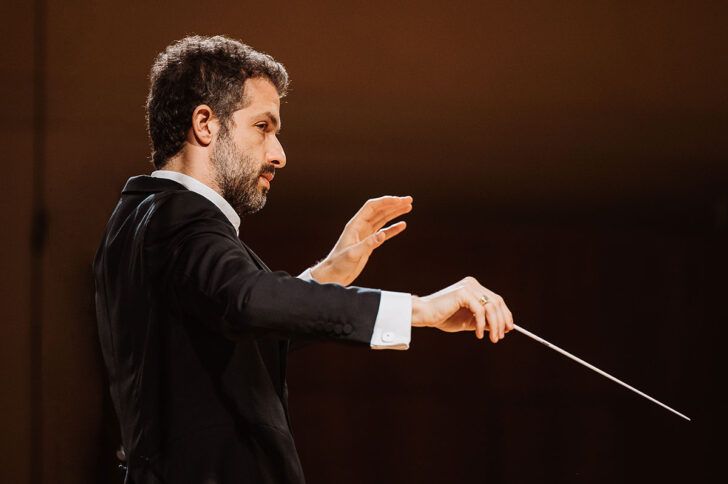
RM : Will the fact that it is concerted and that you are in Paris will change your way of approaching the work or the interpretation?
From: Things are still changing. Already in Vienna, we have highlighted points to retouch compared to Palermo, so the version played in Paris will be slightly different not only from that of creation, but also that of Vienna. I do not hesitate to make permanent improvements and changes, because for me this project like others similar contribute to making music from the past still alive.
We must review the way of approaching the repertoire, which today consists far too often in considering that a text is frozen in a period and must be permanently reproduced identically. A text is by nature addressed differently depending on the culture and the time in which it is received. And it is the same for musical interpretation, where proposing new recreation projects gives the right to enter into depth in certain concepts, where by playing only Requiem From Mozart, I would keep a sacred relationship compared to the partition, without influencing it much in relation to what has already been done for decades.
RM : Recently in Dresden, you had managed The great macabre ; Your last book is about death. Can we think that you are fascinated by the things that end and by death?
-From: I am 43 years old and I think things have changed a lot for me lately. My last book The absences of Haïm Birkner is a book that is both humorous and at the same time complex. This comes back to what I previously said on social connotations and influences, which make that certain situations are very different. For example, my father died twenty-four years ago, which was terrible for me because I was only 19 years old when it happened. But if you take the situation today, the last time we commemorated the birthday of his death, it was a big family party, where we all found ourselves and all laughed a lot.
He was a very funny, always joyful person, so it would make no sense that the opportunities to celebrate him are depressed. On the contrary, the best way to rethink him is to smile. I think most situations are to be taken in this way, and that’s also what I try to capture by my books, especially the next one, which deals largely with the way of forgiving. Death is a completion, but it can also sometimes lead to good things afterwards, by the impact it has on life.
RM : You will become the next musical director of Staatsoper Hamburg after Kent Nagano, do you also want to use death as a concept for your next seasons, for example with particularly strong works around this idea?
From: In the same logic as the “Kaiser Requiem”, I want to see how to renew the repertoire in Hamburg, without focusing at all on death, but rather on creation. For example, from this May will take place the first of The big silence (The great silence), according to Mozart, with at one point in this room for more than ten minutes of silence. Each season, we will have new projects, which imply that this house steeped in history continues to live, and not only by reproduction. I systematically fight against the idea of ”Museum of the Music Past” that have become certain operas, precisely to offer entities always full of life.
Some projects will be controversial, perhaps even some will not be up to expectations, but this will create reactions and will not just be a repetition. In concert, the ideas will therefore go towards this same vision of creating great interactions with the public. Moreover, the name will go from “concert” to “playground” (play area), which implies real exchanges, again in the idea of fleeing the “Musée de la Musique frozen” side. And in this project, we have already ordered ten pieces of ten contemporary composers of ten different origins and countries, to ask them to create parts in surplus or substitute for existing parts.
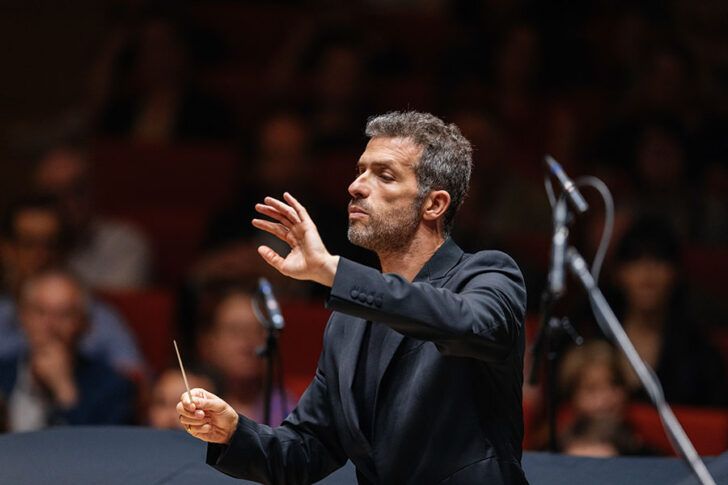 RM : To a certain extent, it was already an idea of Kent Nagano, to link creations in certain programs with works of the great repertoire, like a kind of modern response …
RM : To a certain extent, it was already an idea of Kent Nagano, to link creations in certain programs with works of the great repertoire, like a kind of modern response …
From: Yes, but there the approach is different, because it is no longer to accompany or respond to a large work, but to enlarge it or replace part. For example, Hilary Hahn comes to play the Violin concerto n ° 1 de Bruch, but the first movement will be rewritten by the composer Barbara Assiginaak. We will do this too with the 6th de Beethoven, with a new movement of the storm by Daniela Terranova, or with the 4th Symphony From Tchaikovski to Aziza Sadikova Scherzo. But of course, this should not be anything to replace the existing parts, so we set very clear rules so that there is a real connection between the new recreated part, and the parts already composed.
In every concert or almost, we will offer these projects, in order not to try the idea on one evening, but to initiate a new global approach throughout the season and over the five years for which I am a musical director. The message is clearly to leave the window open to the reinterpretation and the evolution of the music, without however trying to distort the original partitions by fallacious interpretations.
RM : Whether these are these revisited works or the large repertoire, what are your upcoming records?
From: I don’t have one! When you have been able to record, it brought a lot to discover or rediscover the works outside the concert. But today, while there are several hundred, even thousands of versions of the symphonies of Brahms or Beethoven, on the contrary, we must find spontaneity, promote the livebring music to life.
It’s like going to the church, you can consider that it is useless and listen to the priest’s recordings at home every Sunday, but that has nothing to do. To experience things fully, on the contrary, you have to move, be an integral part of the community, meet and exchange. I totally want to encourage this, and I do not think I can do it today by adding a recording of a mahler symphony. In livethere may be a few recordings that we will decide to go out, because the programs will include creations or because we can feel significant energy, or a specific project. But what would be the point of recording a new cycle of Brahms symphonies, when when I listen to them I still choose Bruno Walter?
The recordings were a large part of the musical history of the last century, in addition with consequent improvements in sound as technologies evolution. Today, people have to bring out and have them communicated. When a concert is not recorded, we come back to our discussion on death and disappearance: music dies every time it stops, and sometimes leaves wonderful memories to those who were present, then it always reborn, during other concerts. To fully enjoy things, the feeling is always more intense when you think it may be the last time. If I wanted to leave something frozen, I would have chosen painting, but I am an interpreter, so I’m here to bring music to life.
Créditists Photos: © Roror (I); © Luca Force; © oliver killig
(Visited 4 times, 4 visits today)
Keywords of this article

